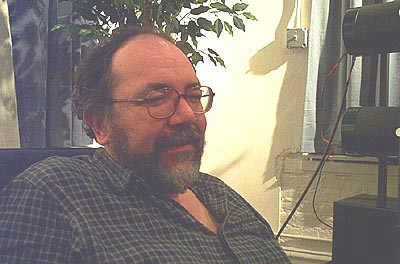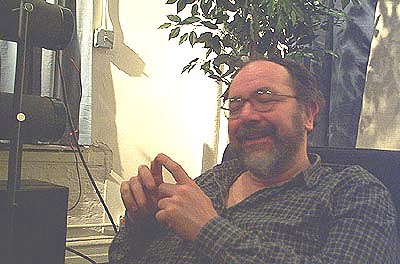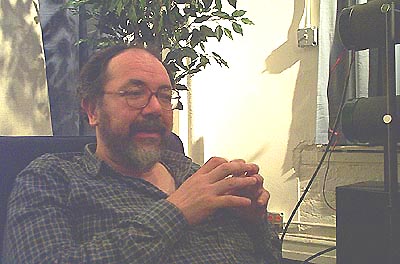|
|
|
|
|
|
|
|
|
|
|
|
 |
|
 |
I really couldn't put it into words. Everything was so close - the amount of distortion, its distribution and weighting. Yet, I clearly preferred the brass. It sounded more organic, more relaxed. More natural if you will. One of those instances where your ears are smarter than your test gear. To be scientifically more rigorous, I should have built even more pairs, interchanged all their boards, eliminated all conceivable variables or possible offsets to duplicate these results over and over. Still, I was and am very confident. I had controlled the most vital factors strenuously enough. Brass was the way to go.
You could easily think of a variety of contributing factors. For one, the magnetic properties of steel are very different from brass. They will alter the field effects of the transformers. No doubt about it. However. The magnetic distinctions between aluminum and brass are very small - probably far too insignificant to play a role. Regardless, brass sounded distinctly better than aluminum. So, magnetism by itself doesn't explain it.
Instead, you could grasp after the molecular density differential between either material - brass is far heavier than steel for the same volume. This query would lead down a corridor of speculation about resonant behavior. Time to flash those season tickets to the opera. Why?
|
|
|
|
|
|
|
|
|
|
|
The whole sound of brass -- trombones, trumpets, French horns --is distinct; a warm, sweet, redolent resonance. Now you could proclaim that brass was a much nobler material than steel - and "prove" it by pointing at the legacy of concert instruments.
As a scientist, I won't go there. Even though it appeals to shallow logic to make an easy and popular case, it's pure conjecture. The truth? I just don't know. I just made the darn thing and it worked. |
|
|
 |
|
|
|
 |
|
|
|
What, you're not omniscient? I'm shocked. I have to sell my amps... |
|
|
|
|
This is a very interesting aspect about design. You cannot pretend to know everything that goes on.
Take our hearing mechanism. In the final analysis, it always becomes the arbiter of anything anyone in this industry does - despite the most impressive credentials, the shrewdest measurements, the newest and most expensive technology. I really believe our hearing perception is influenced by very subtle things. This may sound like the trite explanation to explain everything, but perhaps in a chaotic way, you know - one butterfly in Mongolia flapping its wings affecting someone in New York... humans can hear a huge range of sounds. The harmonic range between the faintest and loudest sounds we perceive is truly staggering.
The same psycho-acoustic mechanism that allows us to perceive and decode signals that are buried way deep in distortion or noise -- say a quiet whisper in the escalating din of a sports bar during play-offs; there's far more noise than signal, still we lock onto the signal ... this is exactly what also points at the opposite. Even if you had very very low distortion -- of course there's always some deviation from "perfection" hiding somewhere between the lines -- our hearing is acute enough to perceive this distortion buried far below the actual signal. We do this automatically just as surely as a mother hears her baby waking while her husband is hosting a turbulent party in the same house.
Humans are keenly sensitive even in negative signal-to-noise scenarios! This probably extends beyond the neuro-mechanical hearing mechanism and its feedback loops to include psychological factors as well. The long and short? Trying to find a correlation between all of this is plainly impossible. And that's why I never get upset if people tell me that they don't like what they hear from my equipment.
It's okay. I mean, there are so many uncontrollable parameters affecting how one person hears versus another. All I can say is that this is what I like. For me, it comes closest to what I hear with live music. It expresses that. If you agree, that's alright, I f you don't, that's alright, too. It's very pretentious to think that we can scientifically explain everything. It kills the mystery. We're very far from touching it. |
|
 |
|
 |
|
Back to a more mundance question, Eduardo. What makes brass harder to chrome than steel? |
|
 |
|
It's more in the polishing stages that the differences arise. You see, the chassis itself has to be stamped. This stresses the material and creates waves or ripples of stress that begin to telegraph when you sand. But I really think that we've gotten the look right now. You don't want it to look absolutely, perfectly smooth as though it was made by a machine. You want that little waviness which naturally accompanies the surface texture of brass. After all, this is a hand-made product, fashioned by a few artisans one at a time. |
|
|
|
|
|
|
|
|
|
 |
|
|
There's a human element in it -- a kind of craftsman soul. An essential ingredient to what we're trying to achieve. Think hand-made leather shoes that carry the physical imprimatur of he who made them. That's a vital part of the allure, the fit, the comfort level.
Say I used CNC tooling during manufacture. One of two things would happen. The raw cost of sourcing this part would compound significantly to impact our end-user pricing. Or, we'd have to become a frenzied assembly line shop pumping out high-volume commodities. The first isn't economically feasible. The second doesn't appeal to my heart.
Going on close to two years since I first began this Model 3880 project which evolved into today's Model 88, I can say that the physical thing, the amplifier itself, now mirrors what I had envisioned all along. That is a very satisfactory feeling. All the test gear, the jigs, the protocol and procedures are in place. We've graduated from the school of hard-knocks. We're now into the artistic phase. The craft has been mastered. A different element of creativity, joy and play enters the process. It requires not the same but even more attention. A true fascination with and appreciation for the tiniest and often invisible details that add to the crowning touches. In a certain sense, it's more work than before. But I will also say that it now comes easier. It's less effortful, more elegant. We now know how to do it. |
|
 |
|
The electronics engineer as artist? |
|
 |
|
This is a very interesting concept - the hi-tech cottage industry of High-End audio. Really small garage operations nowadays have access to very sophisticated applied research. This is something relatively new, paralleled and preceded by the computer industry in the last 15 years. Now it is starting to happen in audio where the hi-tech engineering content took a bit longer to arrive. We now enjoy access to very cheap, extremely powerful tools of amazing versatility. |
|
 |
|
|
|
15 years ago, these tools were beyond the reach of any but the largest, most well-funded firms. I think this whole High-End industry boom -- not of sales but these countless manufacturers with diverse yet truly viable, shockingly hi-tech solutions -- is a direct outgrowth of that. People realize "I can make that". Many cross over from related fields. They come and contribute new ideas, novel expertise. The barriers of entry have softened. The initial jump into these waters is easier. We now have the ability to stand on the shoulders of those who came before in an instant. The advent of the Internet and global resource sharing make it possible.
Think of all those oldtimers - Marantz and McIntosh, Dynaco, Scott. They were the mainstream then. Today's High-End audio cottage industry didn't exist yet. A Marantz Model 8 or 9 was simply the top of the available heap at the time. It just so happened that tubes, then and now, sounded better much more easily. They naturally -- (laughs) well, this is debatable -- they naturally have the right defects. (Laughs out even louder, then repeats this statement for emphasis by coining a new term.) They naturally have the right incorrections. And you cannot correct them too much without destroying the magic. Transistors arrived. You were suddenly able to correct for all deficiencies. By correcting everything (giggles more) things... well, the results speak for themselves. Something was lost. |
|
 |
|
So what you're really saying is that our concept of correct and defect, of right and wrong, is deeply flawed. Correct? I mean, properly incorrect? |
|
|
|
|
 |
 |
|
|
|
|
 |